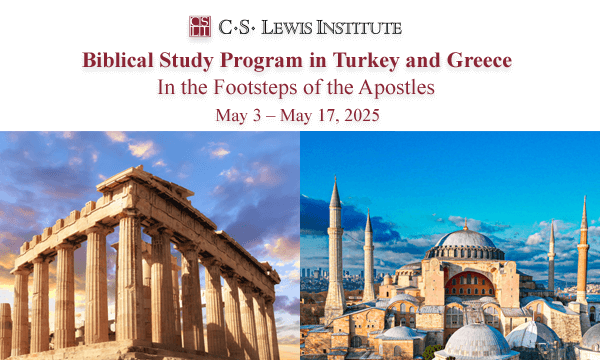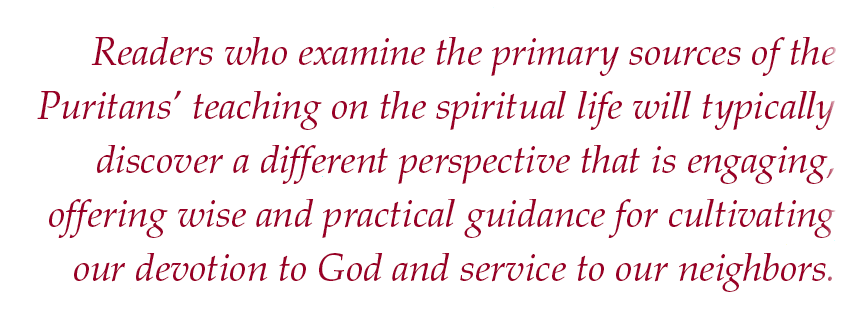Back to series



The Spiritual Discipline Of Meditation
Click here to open a Print - Friendly PDF
 Isaac Ambrose (1604–1664) was a moderate English Puritan minister living in Lancashire, England. Unfortunately little has been written on Ambrose; he has much to teach the church.1
Isaac Ambrose (1604–1664) was a moderate English Puritan minister living in Lancashire, England. Unfortunately little has been written on Ambrose; he has much to teach the church.1
Educated at Brasenose College, Oxford, as a young man he served as one of the king’s preachers—a select group of four itinerants originally charged with preaching the Reformation doctrines of grace in Lancashire. After briefly serving two smaller congregations, around 1640, Ambrose became the pastor of St. Johns Church, Preston.
In 1657 he moved to a more obscure location farther north in Garstang. Ambrose specifically states his need for a less stressful parish due to the challenges of Roman Catholicism as well as the superstition prevalent in the region.
Supporting the effort to develop Presbyterianism in this region of northwest England, he served as one of the moderators of the annual meetings. Through various committees he also sought to provide relief to those suffering financial hardship resulting from the local battles of the English Civil War. As a nonconforming minister of the Church of England, Ambrose was eventually ejected from his pulpit by the Act of Uniformity of 1662.
Ambrose was a well-respected devotional author, best known both then and now for his massive work, Looking unto Jesus. He also wrote a significant work on sanctification titled Media: The Middle Things, In Reference to the First and Last Things: or, The Means, Duties, Ordinances, both Secret, Private and Public, for Continuance and Increase of a Godly Life, (Once Begun,) Till We Come to Heaven.2 Media, first published in 1650, was enlarged and revised in 1652, followed by a third expanded edition in 1657.
Understanding the Nature and Purpose of Spiritual Duties
The Puritans typically approached spiritual disciplines by dividing them into three categories: secret, private, and public.3 Secret duties refers to the individual’s personal spiritual practices and reflect Jesus’ command to withdraw to a place of privacy to practice one’s piety (Matt. 6:6). A private context refers to a small group, such as family or friends gathered in one’s house. The word public describes the larger gatherings in church buildings for worship or other spiritual exercises.
While Ambrose himself actively cultivated all three categories, we here focus on his exhortation regarding the secret discipline of meditation on Scripture.
According to Ambrose spiritual duties are any practices that awaken, strengthen, or deepen a person’s relationship with the triune God. Ambrose provides a compelling metaphor of spiritual disciplines when he asserts that:
...the saints look upon duties (the Word, Sacraments, Prayers, etc.) as bridges to give them a passage to God, as boats to carry them into the bosom of Christ, as means to bring them into more intimate communion with their heavenly Father, and therefore are they so much taken with them.4
Spiritual disciplines have the ability to create a reciprocal relationship that is marked by a growing intimacy based upon both gratitude and love for God.
Ambrose cautions his readers that there is nothing unique about these practices, and great care must be exercised so as not to use them to bargain with God. He also reminds us that spiritual practices cannot save a person.
Yet Ambrose stresses that spiritual duties can be a source of delight and joy, bringing us into God’s presence. Further, practicing them brings believers a portion of heaven, as if “their hearts [were] sweetly refreshed.”5 In other words, spiritual practices can both confirm the reality of God’s presence and provide a foretaste of heaven’s joy because we have been joined with Christ.
Ambrose’s descriptive language on the effect of cultivating spiritual disciplines must not be ignored. Finding “hearts sweetly refreshed” reveals a critical dimension of Puritan piety; while their focus was always on the intellect, they never excluded the affective dimension of the soul. In reality, the Puritans challenge contemporary Christians with the much-needed balance between head and heart.
On the one hand, some Christians today are overly cognitive in their faith, giving little attention to how Scripture, worship, or spiritual practices might affect them. Ignoring the transformative power of these spiritual means is unwise; they are intended as reminders of God’s presence and desire to be in communion with us. There is an equal danger at the opposite extreme; some people today are so intentional about seeking experiences that they display little sensitivity to the origin of that experience.
The Puritans were spiritually alert and discerning to recognize that the Holy Spirit was not the only One who was present in the spiritual realm. They understood the need to “test the spirits to see whether they are from God” (1 John 4:1 NIV). It is interesting to note that Ambrose devoted a full book to this topic, titled War with Devils.
This intentional combination of integrating the head and the heart did not originate with the Puritans; it has a long history within Christian spirituality. The writings of many Puritans reveal a deep appreciation for Bernard of Clairvaux (1090–1153). Bernard, a key founder of the Cistercian (“school of love”) movement, was a favorite writer of John Calvin.
Ambrose quotes directly from Bernard’s method of employing both the intellect and the will (often synonymous with the affections) when he asserts, “holy contemplation has two forms of ecstasy, one in the intellect, the other in the will; one of enlightenment, the other of fervor.” In summary, Ambrose declares that the foundations for “our meditation are in this method: to begin in the understanding and to end in the affections.”6
This integrated approach of balancing the intellectual with the affective reflects the experimental or experiential piety of Puritanism. J.I. Packer maintains, “Puritanism was essentially an experimental faith, a religion of ‘heart-work’, a sustained practice of seeking the face of God.”7 The writings of Isaac Ambrose breathe with the inspired pulse of a person who has experienced the love and joy of God.
He urges his readers to “labor so to know Christ, as to have a practical and experimental knowledge of Christ in his influences, and not merely a notional [mental] one.” The Puritans stressed this message repeatedly,
knowing that people could easily receive speculative head knowledge of Jesus without their hearts being touched or transformed. Ambrose was interested in changed hearts, beginning with himself. He and his fellow Puritans recognized that this sort of transformation was dependent on God’s inner working through the Holy Spirit in the human heart.
Ambrose also emphasizes the importance of God’s inward teaching when he declares, “Man may teach the brains, but God only teaches the heart; the knowledge which man teaches is a swimming knowledge; but the knowledge which God teaches is a soaking knowledge.”8 This does not limit the importance of knowledge or the human effort that is motivated by God’s initiative of grace; it rather emphasizes the critical dimension of depending on the Holy Spirit’s guidance in the cultivation of the spiritual life.
Further, the Puritans, like their earlier Reformed guides such as Calvin, always sought to connect the Word with the Spirit. One can trace this theme throughout the history of the church. When the church has been careful to maintain a healthy balance, a vibrant spirituality has flourished. But when either the Word or the Spirit was elevated to the exclusion of the other, aberrant theology and piety was the result. Ambrose consistently reminds readers that the witness of God’s Spirit always is agreeable
to Scripture.
So it is not surprising that Ambrose asserts that the accumulation of knowledge, even that of biblical knowledge, is of limited value unless it is applied to one’s life. This principle guides both his personal method for meditation on Scripture and his instruction to others in reading and praying Scripture. This is clearly evident in the structure of Looking unto Jesus. As he approaches each new section of his examination of Christ’s life, he begins with a detailed exegesis of the appropriate biblical texts.
Only then does he seek to apply it to his readers’ lives. Ambrose consistently follows this pattern, first studying the objective truth of Scripture and then stirring up the affections to apply it to the heart, so that he and his readers might experience the subjective nature of those same passages. Summarizing the purpose of spiritual disciplines, Ambrose declares,
Study therefore, and study more, but be sure your study and your knowledge is practical rather than speculative; do not merely beat your brains to learn the history of Christ’s death, but the efficacy, virtue, and merit of it; know what you know in reference to yourself.9

Being a good Reformed theologian, Ambrose recognized that the human brokenness due to sin distorts a person’s ability to perform properly these spiritual practices. Indeed even our best efforts are frequently distorted and mixed with sin. Significantly, a central theological principle in Ambrose’s understanding of spiritual duties was a person’s union with Christ.
The Puritans frequently called this spiritual marriage. Union was seen both as the beginning of the Christian life through conversion and justification and something into which a person would continually deepen and grow throughout life until one reached heaven. Ambrose captures the depth of spiritual intimacy. This continual desire hungers for Christ’s refining love to purge and create an ever-greater awareness of Christ’s indwelling love. All of these desires combine in his meditation on the soul’s love to Christ:
Is it thus, O my soul? has the Lord Christ indeed discovered his will to you for his spouse? What, he that is so holy, to marry such an impure wretch as you are? O how should this but melt you into a flame of love? . . . O my soul, henceforth cling to your Savior, go out of yourself and creep to him and affect not only union, but very unity with him; bathe yourself hereafter again and again, many and many a time in those delicious intimacies of your spiritual marriage.10
I note a number of important principles in this quotation. Ambrose employs the bridal language of the Song of Songs and other biblical writings that were commonly cited by Bernard of Clairvaux and other medieval Christians. Ambrose mirrors that joy and declares that if we are married to our bridegroom Christ, He will purge and perfect our spiritual practices and present them whole to God.
Ambrose asserts the same comforting truth with greater clarity: “for Christ perfects, perfumes, and presents our duties to his heavenly Father.”11 This understanding of Christ’s role and participation within the human practice of spiritual disciplines underscores the significant role of Christ’s ascension in Ambrose’s theology.
Preparation for Reading and Meditating on Scripture
The Puritans understood the great importance of preparing themselves for the spiritual disciplines. Isaac Ambrose recognized that there were ways by which his listeners could improve their ability to hear Scripture more effectively and fully: (1) prayer—praying especially for the minister who preaches, for our fellow Christians that they might be strengthened in faith, and ourselves that we might be blessed in hearing God’s word; (2) meditation—recognizing that we come into Christ’s presence as we hear the Word and considering the nature of our motivation for hearing the Scripture; (3) examination—to discern the frame and receptivity of our hearts and allow the Holy Spirit to deal with our sins; (4) cleansing of the heart—from sin and worldly cares; and (5) the right disposition of our hearts—to be soft and flexible, humble, honest, full of faith, and teachable.
Ambrose offers additional guidelines for the actual hearing of Scripture, counseling us to (1) set ourselves in God’s presence while listening to Scripture, (2) diligently attend to Scripture, (3) seek to understand what we read or hear, (4) be submissive to Scripture, (5) apply the Scripture to our hearts and lives, (5) allow Scripture to stir up our affections for the proper response, and (6) above all delight in God’s word. A review of these principles confirms that Ambrose stressed both the intellectual truth and the affective experience of Scripture.

Ambrose next provides instruction for how we should respond to Scripture after it has been heard: (1) carefully remember and keep what we heard or read, (2) meditate and seriously think over what we have heard, (3) repeat and continue to reflect upon the message we heard or read, (4) put into practice what we heard, and (5) pray for a blessing from the Scripture and allow that memory to be turned into prayer.12
Ambrose’s teaching on preparation illustrates the thoroughness that marked the Puritans.
While Ambrose’s threefold suggestions of preparation may seem overly ambitious for our contemporary culture, they do challenge us with the critical question: how can we be most alert and receptive to the Holy Spirit’s desire to communicate God’s word to our heads and hearts? The more receptive we are, the more likely Scripture will be able to dwell within our hearts.
Guidance on Meditation on Scripture
The following example of Ambrose’s meditation on the Holy Spirit will illustrate his approach and use of Scripture. He first reviews several Old Testament passages that speak of the prophecy of the Spirit’s coming (i.e., Isa. 32:15; Zech. 12:10; Joel 2:28–29).
Ambrose uses the Joel passage to create a bridge to Peter’s sermon citation in Acts 2:17–18. Ambrose then reminds his readers of Jesus’ promise of the Spirit as His replacement, here quoting John 14:16–17; 15:26; 16:7; Luke 24:49. Next Ambrose returns to Acts 2:4 and exegetes this Pentecost text more fully. There is more, but I trust this demonstrates how Ambrose lays down the biblical portion in meditation.
After Ambrose has considered the biblical teaching on an aspect of Christ’s life, he invites his readers to look at Jesus in that specific aspect of His ministry. Ambrose identifies nine ways of looking: knowing, considering, desiring, hoping, believing, loving, enjoying, calling, and conforming to that aspect of Jesus’ life. In the context of “enjoying Jesus,” the following quotation reveals Ambrose’s method for stirring up the affections and applying this to one’s life:
How should it heighten my joys and fill me with joy unspeakable, and full of glory, when I do consider that Christ has sent down his Holy Spirit into my heart? . . . O what comfort is this! I know that the Spirit of Christ is my intimate? That my soul is the temple and receptacle, the house and dwelling of the Spirit of God? . . . Christ in his bodily presence went away, but Christ in his Spirit continues still . . . O my soul was it not an encouragement to the disciples in a storm, that Christ was with them, whom the winds and waves obeyed? Cheer up now, for if the Spirit is in you, Christ is with you . . . O my soul! Remember this in all your troubles; there can be no human want or danger whatsoever, wherein the improvement of this indwelling of the Spirit may not refresh you.13
Ambrose frequently employs the use of soliloquy such as “O my soul” to preach to himself and further apply the biblical truth to his own heart.
Benefits of Meditation
 According to Ambrose there are five benefits from the practice of meditation. First, meditation and its close relative contemplation provide a person with new understanding and love of Jesus. Ambrose recognizes a specific difference between meditation and contemplation; simply stated, contemplation is a more prolonged and deeper experience of meditation that is especially dependent on love and gratitude to God.
According to Ambrose there are five benefits from the practice of meditation. First, meditation and its close relative contemplation provide a person with new understanding and love of Jesus. Ambrose recognizes a specific difference between meditation and contemplation; simply stated, contemplation is a more prolonged and deeper experience of meditation that is especially dependent on love and gratitude to God.
Ambrose maintains that by looking at Jesus we grow in both increased knowledge and deeper appreciation of His mysteries of grace. Clearly this type of meditative knowledge is practical and experiential. Additionally, as someone meditates upon Christ as the Bridegroom of the soul, that person will experience a “flaming, burning love to Christ.” Jesus reciprocates and offers sincere and inward love of Himself to the hearts of His devoted followers.
Ambrose wants his readers to realize that the more they meditate upon the biblical passages on Christ, the more they will know the transformative knowledge of Scripture and the experiential depth of belonging to Christ.
A second benefit of meditation, especially meditation on the nature and promise of heaven, is strength to combat suffering and protection from temptations. Ambrose alerts his readers that “looking on Jesus will strengthen patience under the cross of Christ.”15 Further, heavenly mindedness has the potential to reduce the fears of worldly anxiety.
Third, those who intentionally meditate on Jesus will deepen their intimacy of union with Christ or spiritual marriage with Him. He also offers specific suggestions of how to maintain heavenly conversations, including advantageous reading and meditating on Scripture, prayer, and avoidance of formality when performing spiritual practices. Because the Holy Spirit is the person who primarily guides individuals, Ambrose significantly challenges his listeners to become more attentive to the presence and movement of the Holy Spirit within their lives.

Fourth, meditation and contemplation have the potential to transform believers into Christ’s likeness. Contemplation is a looking, beholding, and gazing upon an object in a sustained loving and grateful manner. When this is directed toward Jesus, a person is changed more and more into Christ’s likeness. Ambrose frequently quotes Saint Paul’s declaration in 2 Corinthians 3:18 on the transformative nature of God’s glory. The final outcome of gazing on Jesus is that the sight of Jesus’ glory will make us more like Christ.
Fifth, heavenly meditation yields a growing sense of enjoyment and delight in God and Jesus. Every opportunity for meditation that gazes upon Jesus as our heavenly bridegroom provides an initial foretaste of the heavenly joy as well as an expectation of that consummation with Christ in heaven. Closely connected with this enjoyment of God is the awareness that meditation creates a deepening experience of admiration and adoration of our triune God. Once again we recognize the reciprocal nature of our relationship with Jesus in spiritual marriage; as He communicates His joy and delight to us, we respond with heartfelt worship and celebration.

Conclusion
Unfortunately some people today view the Puritans as odd curiosities of an earlier century. However, readers who examine the primary sources of the Puritans’ teaching on the spiritual life will typically discover a different perspective that is engaging, offering wise and practical guidance for cultivating our devotion to God and service to our neighbors.
Isaac Ambrose clearly challenges us to take Scripture seriously and not to neglect the importance of meditation and contemplation on God’s word. More specifically, I would assert that Ambrose’s greatest insight for us is to integrate and maintain the critical balance between the objective and subjective nature of reading and meditating on Scripture.
As previously stated, this requires a balanced interaction between the word and the Holy Spirit. An immediate benefit of this intentional commitment to both the intellect and affective nature is to create a more biblical theology of experience that avoids the all-too-common contemporary expressions of fragmentation and compartmentalization. Therefore, Ambrose reminds readers, “If the Spirit of Christ comes along with the Word, it will rouse hearts, raise spirits, work wonders.”16
Notes:
1. The best introduction to the life and spirituality of Isaac Ambrose is my book, Soul Recreation: The Contemplative–Mystical Piety of Puritanism (Eugene, OR: Pickwick, 2012). I am in the process of preparing a new book that will provide selections of Ambrose’s writings for contemporary readers. It is tentatively titled Gazing on Jesus with Gratitude: The Piety of Isaac Ambrose (Grand Rapids: Reformation Heritage Books, forthcoming).
2. I have modernized and standardized all seventeenth-century spellings.
3. Isaac Ambrose, Media (1657), t.p. and 42.
4. Ibid., 33, cf. 27.
5. Ibid., 34.
6. Ibid., 222.
7. J.I. Packer, A Quest for Godliness (Wheaton, IL: Crossway, 1990), 215.
8. Isaac Ambrose, Looking unto Jesus (Harrisonburg, VA: Sprinkle Publications, 1986), 125, cf. 27, 42. Since Looking unto Jesus has been republished by Sprinkle, I am using this version rather than the original 1658 edition.
9. Ibid., 619.
10. Ambrose, Media (1657), 235 (incorrectly numbered 237)–236.
11. Ibid., 39.
12. Ibid., 377–93.
13. Ambrose, Looking unto Jesus, 548–49.
14. Ibid., 35.
15. Ibid., 40.
16. Ibid., 433.

Tom Schwanda
Professor, Senior Fellow for Christian Spirituality, CSLI Tom Schwanda is associate professor of Christian Formation and Ministry emeritus at Wheaton College and adjunct associate professor of Christian Spirituality at Fuller Theological Seminary. Tom earned a Ph.D. from Durham University, a D.Min. from Fuller, and a M. Div. from New Brunswick Theological Seminary. He also studied at Gordon-Conwell Theological Seminary. He is the author of numerous articles and book chapters and three books, including The Emergence of Evangelical Spirituality: The Age of Edwards, Newton, and Whitefield and is currently preparing a book on George Whitefield, a biography that will highlight the importance of Puritans in his ministry.
 COPYRIGHT: This publication is published by C.S. Lewis Institute; 8001 Braddock Road, Suite 301; Springfield, VA 22151. Portions of the publication may be reproduced for noncommercial, local church or ministry use without prior permission. Electronic copies of the PDF files may be duplicated and transmitted via e-mail for personal and church use. Articles may not be modified without prior written permission of the Institute. For questions, contact the Institute: 703.914.5602 or email us.
COPYRIGHT: This publication is published by C.S. Lewis Institute; 8001 Braddock Road, Suite 301; Springfield, VA 22151. Portions of the publication may be reproduced for noncommercial, local church or ministry use without prior permission. Electronic copies of the PDF files may be duplicated and transmitted via e-mail for personal and church use. Articles may not be modified without prior written permission of the Institute. For questions, contact the Institute: 703.914.5602 or email us.
-
Recent Podcasts
Leaving Deception Behind – Vince Revo’s Story
by Vince Revo, Jana Harmon on May 9, 2025Vince Revo is a former atheist who walked...Read More
-
Eric Liddell: Muscular Disciple and Olympic Champion
by Joel Woodruff on May 2, 2025
-
Believing is Seeing, A Scientist’s Journey to God – Dr. Michael Guillen’s Story
by Michael Guillen on April 25, 2025
-
Recent Publications
Seeking Dietrich Bonhoeffer
by Joseph A. Kohm on April 29, 2025Explore Dietrich Bonhoeffer's big ideas and how his...Read More
-
Who Is The Real Jesus?
by John R.W. Stott on April 1, 2025
-
Does the Modern World Face a Crisis of Meaning?
by Cameron McAllister on March 1, 2025
0
All Booked
0.00
All Booked
0.00
All Booked
18008
GLOBAL EVENT: 2025 Turkey & Greece Study Program – In the Footsteps of the Apostles
https://www.cslewisinstitute.org/?event=global-event-2023-biblical-study-program-of-israel&event_date=2025-05-12®=1
https://www.paypal.com/cgi-bin/webscr
2025-05-12

Next coming event
Days
Hours
Minutes
Seconds
GLOBAL EVENT: 2025 Turkey & Greece Study Program – In the Footsteps of the Apostles
On May 12, 2025 at 3:00 pmat İstanbul, TürkiyeSpeakers

Tom Schwanda
Professor, Senior Fellow for Christian Spirituality, CSLI
Team Members

Tom Schwanda
Professor, Senior Fellow for Christian Spirituality, CSLITom Schwanda is associate professor of Christian Formation and Ministry emeritus at Wheaton College and adjunct associate professor of Christian Spirituality at Fuller Theological Seminary. Tom earned a Ph.D. from Durham University, a D.Min. from Fuller, and a M. Div. from New Brunswick Theological Seminary. He also studied at Gordon-Conwell Theological Seminary. He is the author of numerous articles and book chapters and three books, including The Emergence of Evangelical Spirituality: The Age of Edwards, Newton, and Whitefield and is currently preparing a book on George Whitefield, a biography that will highlight the importance of Puritans in his ministry.




